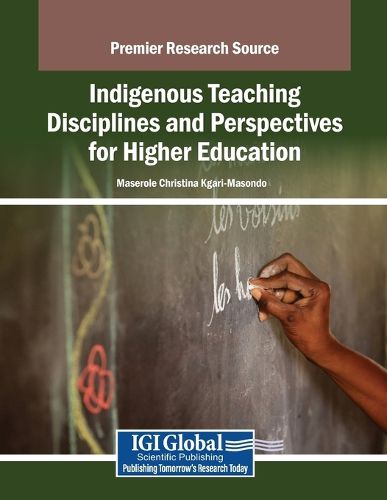Readings Newsletter
Become a Readings Member to make your shopping experience even easier.
Sign in or sign up for free!
You’re not far away from qualifying for FREE standard shipping within Australia
You’ve qualified for FREE standard shipping within Australia
The cart is loading…






This title is printed to order. This book may have been self-published. If so, we cannot guarantee the quality of the content. In the main most books will have gone through the editing process however some may not. We therefore suggest that you be aware of this before ordering this book. If in doubt check either the author or publisher’s details as we are unable to accept any returns unless they are faulty. Please contact us if you have any questions.
Literature indicates that sociolinguists and educationists often claim multilingual practice and Africanizing and Indigenizing education will jeopardize national unity and social cohesion. Such claims delay the implementation of decolonization policies and the transformation of the curriculum under false assumptions. However, research reveals many Indigenous students struggle with higher educational content which is often presented through languages that are unfamiliar to them. This implies that there is a need to uncover resources that can assist in necessitating the implementation of Indigenous education globally and that all multilingual strategies in education must be based on quality mother tongue illustrative content as its foundation. As a result, further research on the subject is necessary to enhance teaching strategies that reach all Indigenous students. Indigenous Teaching Disciplines and Perspectives for Higher Education illustrates the need for the implementation of a decolonized teaching and learning curriculum with integrated resources as models. It explores how to improve Indigenous knowledge content and teaching methods. Covering topics such as cultural identity, African research methodology, and Indigenous media, this book is an excellent resource for teachers, policymakers, school administrators, researchers, scholars, academicians, and more.
$9.00 standard shipping within Australia
FREE standard shipping within Australia for orders over $100.00
Express & International shipping calculated at checkout
This title is printed to order. This book may have been self-published. If so, we cannot guarantee the quality of the content. In the main most books will have gone through the editing process however some may not. We therefore suggest that you be aware of this before ordering this book. If in doubt check either the author or publisher’s details as we are unable to accept any returns unless they are faulty. Please contact us if you have any questions.
Literature indicates that sociolinguists and educationists often claim multilingual practice and Africanizing and Indigenizing education will jeopardize national unity and social cohesion. Such claims delay the implementation of decolonization policies and the transformation of the curriculum under false assumptions. However, research reveals many Indigenous students struggle with higher educational content which is often presented through languages that are unfamiliar to them. This implies that there is a need to uncover resources that can assist in necessitating the implementation of Indigenous education globally and that all multilingual strategies in education must be based on quality mother tongue illustrative content as its foundation. As a result, further research on the subject is necessary to enhance teaching strategies that reach all Indigenous students. Indigenous Teaching Disciplines and Perspectives for Higher Education illustrates the need for the implementation of a decolonized teaching and learning curriculum with integrated resources as models. It explores how to improve Indigenous knowledge content and teaching methods. Covering topics such as cultural identity, African research methodology, and Indigenous media, this book is an excellent resource for teachers, policymakers, school administrators, researchers, scholars, academicians, and more.